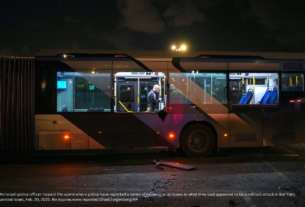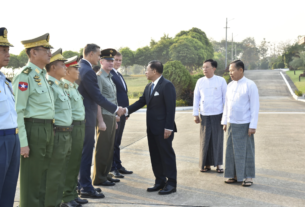On January 25, 2025, Sudan’s army chief, General Abdel Fattah al-Burhan, visited Khartoum’s military headquarters and boldly declared his intent to defeat the Rapid Support Forces (RSF). The RSF, led by General Mohamed Hamdan Dagalo, has been in intense conflict with Sudan’s military since April 2023. The struggle for control over Sudan has caused thousands of deaths and millions of displacements, shaking the country’s future.
The RSF, initially an ally of Sudan’s military, turned against the government, leading to violent clashes in several regions. Khartoum has become the center of the conflict, with both sides battling for dominance. Burhan emphasized that the struggle is about securing the country’s future and pushing back against those seeking destabilization.
General Burhan’s visit to the military headquarters signaled a commitment to ending the RSF threat. Despite internal and external challenges, Sudan’s army aims to maintain control over key territories. The government continues to reject calls for dialogue with the RSF, instead focusing on military solutions. “We will fight until the RSF is defeated and Sudan’s future is secured,” Burhan said during his visit.
The RSF’s control of strategic areas remains a significant challenge for the Sudanese military. Despite several large-scale offensives, the army has struggled to regain complete control of the country. The RSF’s fighters, many from marginalized groups in Sudan, have proven resilient. These forces are difficult to dislodge, even as the army increases efforts.
The human toll of this conflict has been devastating. According to the United Nations, over 3 million people have been displaced by the violence, with many seeking refuge in neighboring countries. Thousands have died due to combat-related violence, famine, and lack of medical care. Sudan’s healthcare system has collapsed, further worsening the crisis. “The human cost of this conflict is unimaginable,” a UN official stated.
Burhan’s statement, delivered at a military ceremony, was intended to boost the morale of Sudan’s armed forces. His focus on regaining control of strategic areas reflects his determination to keep Sudan under military control. His leadership faces criticism for not protecting civilians and for allowing the violence to escalate. Many believe the army’s approach is only deepening the crisis.
International organizations, including the United Nations and the African Union, have called for a ceasefire. They urge both sides to enter talks and seek a peaceful resolution to the conflict. “A military victory will not bring peace to Sudan,” said a UN representative. Despite these calls, Sudan’s government has rejected negotiations, continuing to focus on military strategies.
The strategy of relying on military force has sparked criticism from neighboring African countries. Many argue that the conflict will only continue without a comprehensive political solution. “The military solution is not the answer,” said a regional diplomat. Sudan’s future remains uncertain as the violence continues, with no end in sight.
As Sudan’s military intensifies its offensive, the RSF is expected to escalate its tactics. With both sides struggling for control, a negotiated settlement seems unlikely. Burhan’s forces are committed to pushing forward, while the RSF’s resolve remains firm. This prolonged battle is making peace seem more distant.
The international community remains divided on how best to support Sudan. Some countries have offered humanitarian aid, while others have imposed sanctions to pressure the Sudanese government. “The world must take a stronger stand to end this conflict,” said a European official. The following steps in Sudan’s fight will determine the country’s direction.
Sudan’s path forward is unclear. The ongoing conflict reminds us of the challenges countries face when dealing with internal power struggles. As Burhan vowed, “We will not stop until Sudan is free from the RSF,” but peace seems far from reach.




